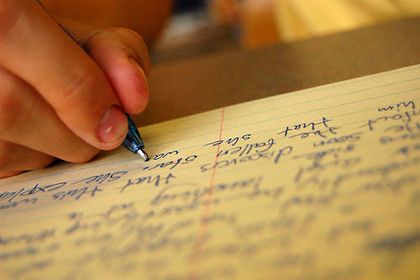This slide set will give you five tips to help get you exam-ready: Planning, revising, streamlining, memory-boosting and attentive reading.
|
|
Created by Brad Hegarty
almost 10 years ago
|
|




 (0)
(0)
| 0 | ||
| 0 | ||
| 0 | ||
| 0 | ||
| 0 |
0 comments
There are no comments, be the first and leave one below:
How to survive final exams
Add TitleHowever, developing a positive mindset can act as motivational booster and fight exam stress. There are ways you can encourage your brain to adopt this attitude to help you produce outstanding exam results.
This slide set will give you five tips to help get you exam-ready:
Planning, revising, streamlining, memory-boosting and attentive reading.

1. Plan your success strategy
Add TitleFor studying, it’s only the start of the battle however. The bigger challenge is to stick to your plan, especially when you’d rather be doing something else.
So how can you do this? Be realistic. Set yourself achievable goals or tasks. The more you complete successfully, the more you will be motivated to continue. Also review your progress at regular intervals.
Once you see how much you’ve done, you’ll be galvanised to keep going to complete the task.
2. Review your notes
Add TitleDon’t just study the topics you have covered most recently. Final exams include questions related to the entire subject and the exam questions will assess your overall ability and knowledge of a subject.
It’s important to master the foundation of the subject by covering introductory theory before advancing to deeper topics. Flashcards can help you understand key definitions and terms to build your base knowledge. Using these study aids will also allow you to quickly review your notes before the exams.
3. Reduce the clutter
Add TitleIf you have to revise as well as cover new areas, you will probably start wondering where you'll get the time. The key is to be efficient and cut out material you don't need. Yes, you read that correctly - reduce your workload. This does not mean that you should remove topics or paragraphs at random. You should find a way to reduce the volume of what you have to study without harming your level of knowledge.
The key is to use Mind Maps.
The trick with mind mapping is to use keywords and logically relate
them in a way that your brain is capable of filling in the gaps. Your
brain should be capable of developing a paragraph with sense for every
node or keyword outlined in the map.
https://youtu.be/TwAU0Sy_O0Q
4. Improve your memory skills
Add TitleOnce you fully comprehend the structure and format of the exam for each of your subjects, you can develop a strategy to test yourself. For example, preparing for an MCQ type of test will require a different skill-set than essay answer format.
Engaging your brain in active recall on a regular basis enhances your learning and strengthens your ability to remember information. Building confidence in your learning ability will also motivate you to study for longer and reduce exam stress. Take a look at the GoConqr's Quiz tool for more information and examples.
5. Read everything carefully
Add Title
On the day if the exam, nerves can play a big part and sometimes negatively affect your performance. This can lead to reading questions incorrectly and approaching the answer in the wrong way.
Don’t let this happen to you! Spend time carefully reading the questions and jotting down some notes for when you are writing out your response. Having the structure of your answer clear before you put pen to paper can help you focus on the task and include details that will get you those extra marks.
